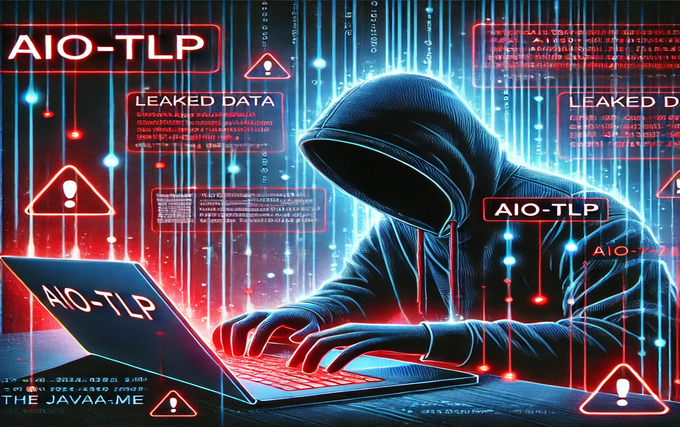Cybersecurity risks are growing in the constantly changing digital environment, impacting not just individuals but also corporations and governments. TheJavasea.me leaks AIO-TLP, a phrase that has gained prominence in cybersecurity circles, is one such current worry. Given the extensive ramifications of data breaches, unauthorized disclosures, and cyberattacks, it is critical to comprehend their implications and take preventative action.
What is TheJavasea.me Leaks AIO-TLP?
Leaks from TheJavasea.me The term “AIO-TLP” describes a cybersecurity issue in which a leak on the website TheJavasea.me is said to have exposed private information. The phrase “AIO-TLP” refers to a single data leak that falls under the Traffic Light Protocol (TLP), a framework that regulates the sharing of private data among cybersecurity communities.
Cybercriminals frequently use weaknesses in digital systems to obtain private data, which they subsequently post on forums or dark web marketplaces. These leaks pose a serious cybersecurity risk since they may include government records, financial information, company secrets, or personally identifiable information (PII).
Cybersecurity Implications of Data Leaks
Compromised Personal and Financial Data
People are at risk of identity theft and financial fraud when personal information like names, addresses, Social Security numbers, and credit card numbers is disclosed. Hackers may utilize this information fraudulently, resulting in monetary losses and harm to one’s reputation.
Corporate and Government Data Breaches
Companies that have data leaks are subject to fines from the government in addition to financial consequences. National security may be jeopardized if trade secrets, confidential material, and operational plans are made public due to corporate espionage and government data breaches.
Increased Cybercrime Activities
By giving bad actors the knowledge they need to start ransomware operations, phishing scams, and other online dangers, data dumps encourage cybercrime. Cybercriminals compromise security and disrupt operations by breaking into systems using credentials that have been leaked.
Common Causes of Data Leaks
Weak Security Infrastructure
Systems are susceptible to assaults due to inadequate cybersecurity safeguards, such as obsolete software, weak passwords, and a lack of encryption. These flaws are used by hackers to access databases without authorization and release data.
Insider Threats
Employee dissatisfaction or anyone with access to private data may purposefully or unintentionally reveal information. One of the hardest cybersecurity hazards to reduce is still insider threats.
Third-Party Vulnerabilities
For a variety of services, businesses frequently depend on outside providers. These vendors become weak points in the cybersecurity chain and could cause data leaks if they don’t have strong security procedures.
Phishing and Social Engineering Attacks
Cybercriminals use advanced social engineering techniques to trick people into disclosing private information. Users are tricked into divulging sensitive credentials by phishing emails, fraudulent messages, and dishonest websites, which are then used against them.
Prevention Measures to Mitigate Data Leaks
Implementing Strong Security Protocols
Prioritizing cybersecurity requires both individuals and organizations to have strong security measures in place, such as:
- Multi-factor authentication (MFA) to add an extra layer of security
- End-to-end encryption for sensitive communications
- Regular software updates and security patches to address vulnerabilities
Enhancing Employee Awareness
Preventing data leaks requires educating staff members about cybersecurity best practices. Regular training sessions should be held by organizations on:
- Recognizing phishing attempts
- Safeguarding login credentials
- Reporting suspicious activities promptly
Conducting Regular Security Audits
Frequent security audits guarantee adherence to cybersecurity requirements and assist in identifying vulnerabilities. By identifying vulnerabilities in an organization’s security structure, penetration testing and risk assessments enable proactive mitigation.
Securing Third-Party Collaborations
Before forming alliances, companies should evaluate the security protocols of outside vendors. Data breaches from outside sources can be avoided by putting contractual security obligations into place and performing regular vendor audits.
Strengthening Network Security
A network that is well-secured is essential for shielding data from unwanted access. Important actions consist of:
- Firewalls and intrusion detection systems (IDS) to monitor and block malicious activities
- Virtual Private Networks (VPNs) for secure remote access
- Access control mechanisms to restrict data accessibility based on user roles
Developing an Incident Response Plan
Cybersecurity mishaps can still happen even with precautions. A quick and efficient reaction to data leaks is ensured by having a clearly established incident response plan. This strategy ought to consist of:
- Identifying the breach and its source
- Containing the leak to prevent further exposure
- Notifying affected individuals and authorities as required by regulations
- Strengthening security measures to prevent future incidents
Conclusion
Leaks from TheJavasea.me In order to prevent data breaches, AIO-TLP emphasizes the urgent need for improved cybersecurity measures. People, businesses, and governments are all impacted by the wide-ranging effects of data leaks. Organizations and individuals can protect their sensitive data by putting strong security procedures in place after learning about the reasons for and consequences of these breaches.
In order to reduce cybersecurity risks, preventive steps including robust authentication procedures, staff training, frequent security audits, and network security improvements are essential. Prioritizing cybersecurity is now essential in an increasingly digital world to prevent sensitive information from ending up in the wrong hands.


